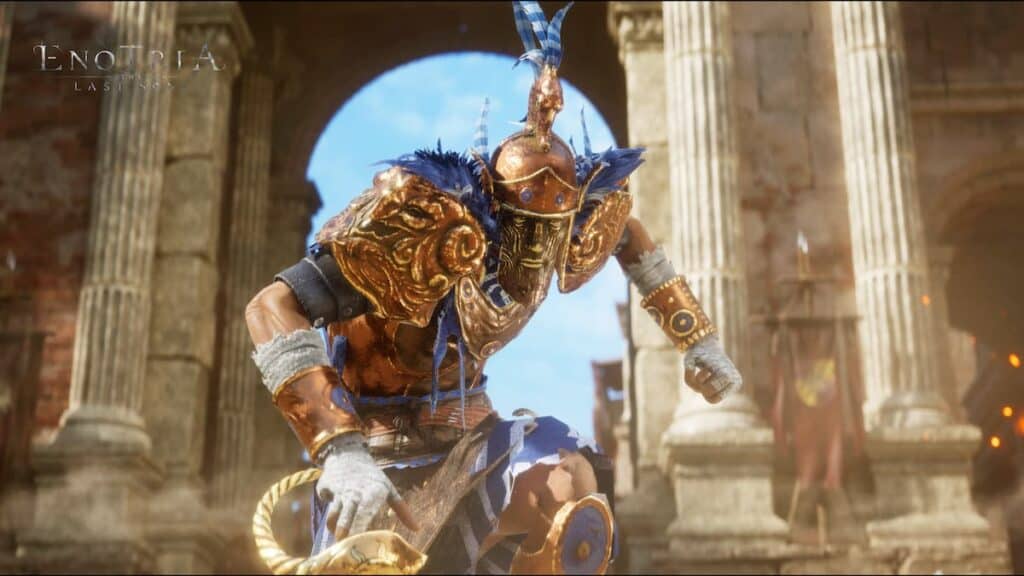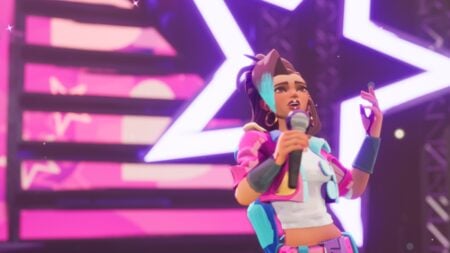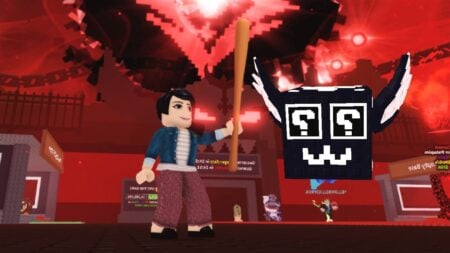Out of the myriad of awesome games I played during Summer Game Fest, Enotria: The Last Song is one that truly caught my eye. I’ll be straight with you: I’m a sucker for a good ol’ Soulslike, and Jyamma Games’ offering fits that bill to a blood-drenched tee. In essence, it’s basically the Bloodborne sequel we’ve all been waiting for.
During SGF 2024, The Nerd Stash had the opportunity to sit down and chat with the game’s Project Manager, Edoardo Basile. His passion shone through and it was a terrific conversation that covered the Italian developer’s influences, intentions, and aspirations. So, with that in mind, let’s get started, shall we?
Enotria: The Last Song SGF Interview With Edoardo Basile
Editor’s Note: The following interview has been lightly edited for clarity.
Dylan Chaundy, Editor at The Nerd Stash: I’ve played the demo already and I’ve absolutely had a blast. It’s awesome and it’s rare for me to be super excited about yet another Soulslike; it’s fantastic to check it out. So Enotria: The Last Song looks like it takes a leaf out of other Soulsborne games when it comes to its storytelling, in that it is quite vague and delivered through NPCs and the environment. Can you give our readers a short overview of the conflict at the heart of Enotria: The Last Song?
Edoardo Basile, Project Manager for Enotria: The Last Song: The cool thing about Enotria: The Last Song is that we wanted to represent Italy in its bad and good. You will see this wonderful world. And, you know, we wanted to avoid creating a clone, essentially. We wanted to take the dark side of this genre and put it inside of the themes and the narratives. And the very, very cool thing is, that again, everything in the lore is inspired by these recurring themes that we feel as Italians are now much, much more current and happening right now. And we wanted to explain to people like stagnation, cultural stagnation.
Everybody is in this infinite loop and nothing is going forward. So you are the power of change and you want to change this thing because you want the world to progress. You want to avoid having everybody stuck. You have wasted youth because the world is wonderful. It’s frozen in time, but it’s wonderful. And this is something that we as Italians, we’re so used to seeing in art and culture and everything, that we normalized it. And we don’t care about it anymore. Like, it’s super normal to us to go grab a coffee and you’re like 100m away from Leonardo da Vinci stuff or whatever.
Dylan: Sure, Italy is so culturally rich. Yeah.
Edoardo Basile: Yeah, yeah. We don’t give it importance anymore. That’s the thing. So we have all these themes, and we felt like conveying them was very difficult with an indirect narrative like they did with Dark Souls. So we also have environment and indirect narrative, as you can see in the church. All the frescoes [paintings on the walls and ceilings]. If you just study the frescoes, you can have a very big chunk of a section of the world. You will probably go back there once you go forward with the game just to understand what happened.
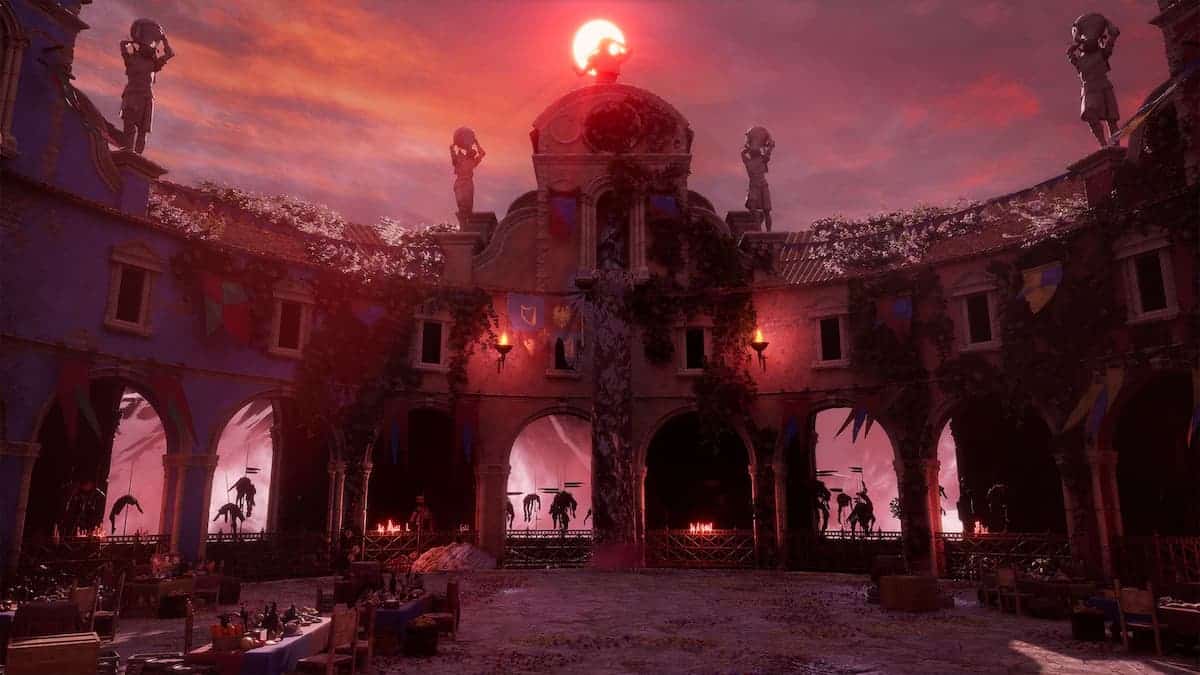
But at the same time, we try to give more importance to characters in the game. Bosses, Masks, cutscenes all play a very important role in the story. Again, everything reconnects with the agency that the character is going through and the character development. So we put a bit of effort and find a sweet spot in the middle between direct and indirect narrative. And this is also thanks to our core team members. They’re all coming from Cyberpunk 2077, which is a very narrative game. So we implemented quests and cutscenes in a more traditional way than Dark Souls.
Dylan: Awesome. That’s really, really fascinating. It’s fair to say that the Soulslike sub-genre is a crowded and competitive market. How do you feel Enotria: The Last Song differentiates itself from the competition. I know you touched on this inside, but would you be able to just shed some light on that?
Edoardo Basile: Yeah, I mean, of course, like now it’s a very hyped-up genre. In my opinion, nowadays, it’s a genre. It is very unique by itself now. I think it deserves to be called a genre.
Dylan: Yeah, I’d agree with that.
Edoardo Basile: Yeah, of course it’s an action-RPG. But we knew we had to differentiate ourselves from how FromSoftware works. Also, you know, commercially speaking, because it doesn’t make sense. It will be suicide just to go and do a direct clone. So, yeah, of course, like setting first of all, we are not dark. So we stand out in that sense. Nobody did that. Even Lies of P is very dark and gritty — amazing job by them, of course. But we wanted to have something more unique on the artistic side because, again, we as Italians, we really love design, art and everything. So we wanted to stand out.
And of course on gameplay side, we had our unique twist in the gameplay loop with the Mask and the Loadout systems. We have a very deep RPG system. And we try this new thing, just breaking the barrier of the archetype. You don’t need to choose and commit to just one archetype at the beginning of your journey. You can just evolve with your character.
Dylan: Yeah, it’s very flexible.
Edoardo Basile: It is. And I think like this is a great solution because most of the people, when they first approach Souls games, they first of all, they have been put in front of a very important decision, even without knowing the game. What are you going to be? Paladin? A mage, a tank? I don’t know, and 99% are going to choose Paladin because it’s the most, you know, balanced one. Like, nobody knows. Like, how can I know? I never played the game. So what we did is we the narrative arc of the character, of the main character and the development. In our opinion, players should also be able to adapt to the game and find their game style. And I think with the gameplay, we managed to have this.
Dylan: I feel like I know the answer to this now, but I’ll just touch on it nonetheless. Narratively, Enotria: The Last Song is inspired by Italian folklore and Italian urban legends, which is a really cool idea. What was the reasoning behind the decision? Do you have any Italian colleagues on staff, by chance? Obviously you’re an Italian team. But is there anything you wanted to add to that?
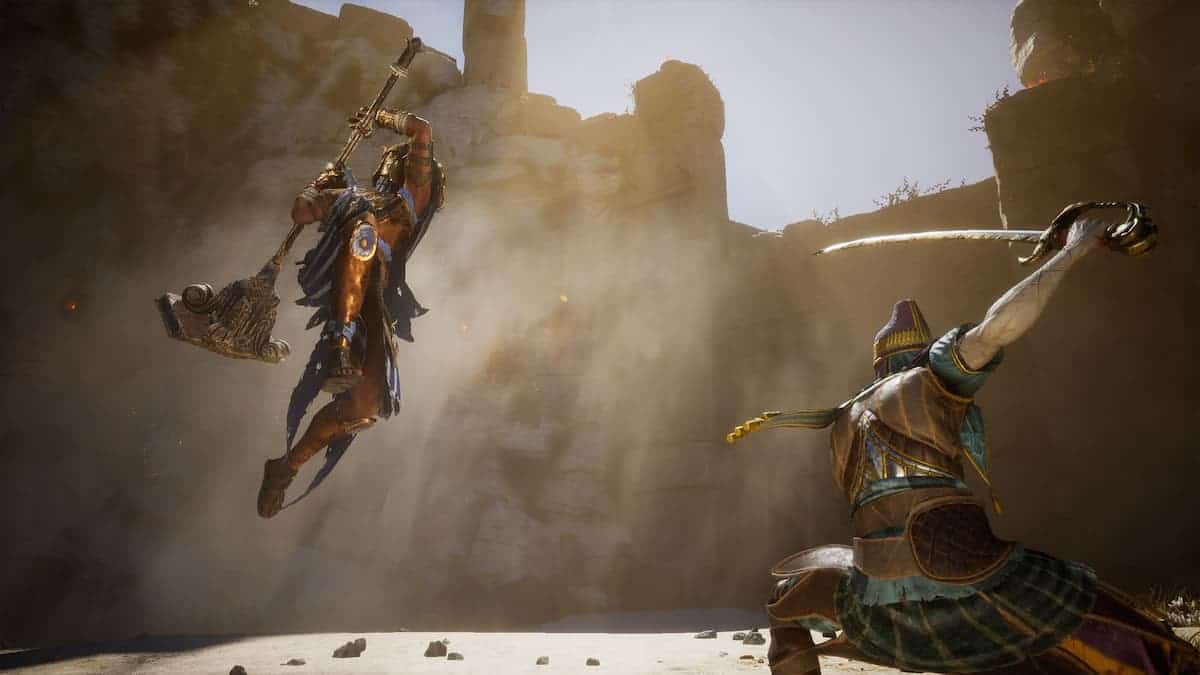
Edoardo Basile: Yeah. Of course. Like, the vision of the game is when we started, we were just, like, ten people. We are now 60. It’s still a small team. We were all Italian, of course. And we were a bit — I don’t want to say pissed off — but annoyed by seeing Italy being misrepresented by foreigners, because, you know, it’s very easy to have stereotypes in Italy. You can just be pizza, mafia, Berlusconi, Mandolinata — cool, all very, very nice. But that’s not Italy. Our mission was to make you feel Italy and not just be in Italy.
Like, you can play Assassin’s Creed. They did a perfect depiction of antique Rome. You’re in Italy — congratulations! Enotria is not Italy. Enotria is a representation based on Italy. And what you have to feel is like: Oh man, this is amazing. Where am I? Italy.
It’s a slight difference, but it means the world to us because Italy must be felt to some extent. So yeah, the vision was to, of course, break the stereotypes and represent Italy for many from the Italian point of view.
Dylan: I love that. One of the most iconic beasts in Italian folklore is the — I’m not sure how to pronounce this — the Babau. Apparently, it’s largely depicted as a one-horned demon. Will this hideous beast be featured? Or is there anything like that in Enotria: The Last Song?
Edoardo Basile: I won’t say anything to spoil it, but what I can say is we are Italians and we had to take eight months just to study our own tradition because we have so much stuff we didn’t even know about. And literally, like we can do another, like, ten games with all the tradition we have. So we can expect to have, of course, folklore creatures and stuff like that. But again, we have have such a big pool to take from that. Probably in the future you will see much, much more.
Dylan: You play as the Maskless One in Enotria: The Last Song, which is really mysterious. Can you tell us a little bit about your protagonist? What would you say is their main motivation?
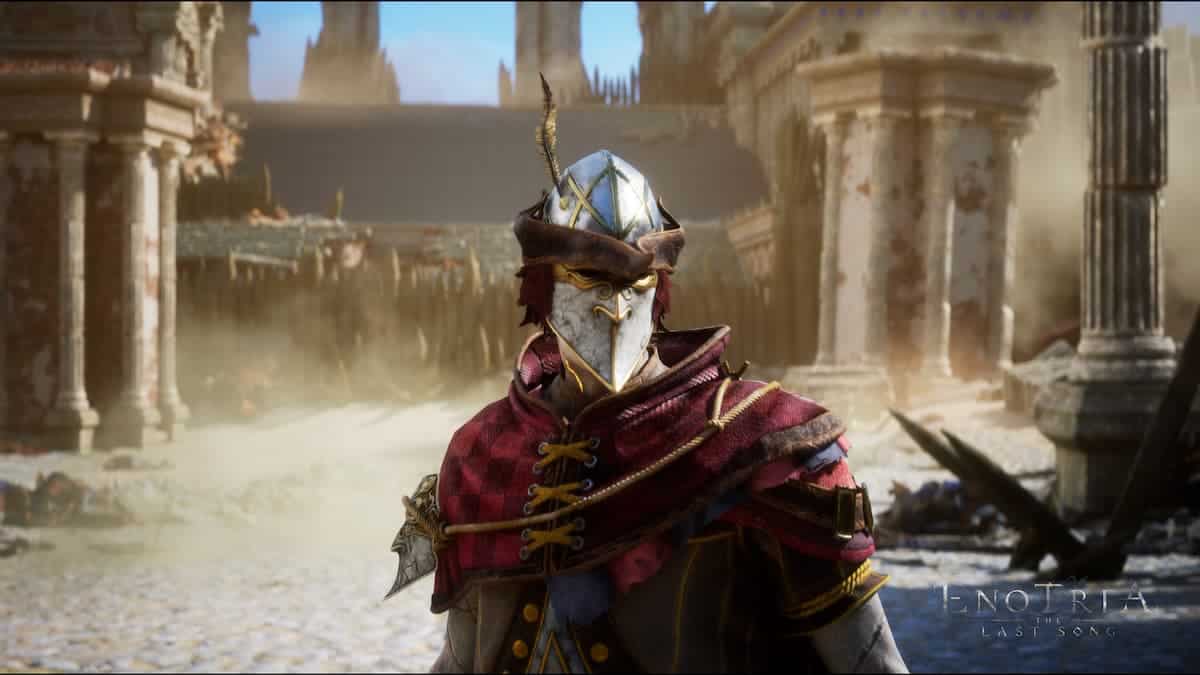
Edoardo Basile: Again, the main character is actually — I have to be very, very careful here because it’s also very difficult to make people understand — but again, you’re like an empty vessel. Like, you’re a mannequin in the beginning. And you have a mission. That’s the thing. And again, you can say, kind of Pinocchio. He has his own narrative arc when he finally becomes a kid, right?
Dylan: It’s like he’s getting a soul or becoming a real boy.
Edoardo Basile: Yeah, exactly. Our main character also has his own, let’s say, narrative arc and development. Of course, it’s not going to be so narrative-oriented. It’s also, you are becoming like the main character. Some of the ideas and context, you will have your own idea. You will take your own decision and you will take your own path throughout everything. So you must see him as a mannequin that was summoned and without any context or anything. Just go do your thing. And then during the story, you will start to realize some stuff happening. This is all I can say.
Dylan: Much like RPGs as a whole, Soulslikes lean quite heavily into character and stat progression. What’s the progression like in Enotria: The Last Song? Are there skill trees and abilities to unlock? Will you be able to upgrade your weapon and armor? I saw the weapons being upgraded and there’s abilities that you can unlock. Are there any other abilities later in the game that you unlock and how does your character progress?
Edoardo Basile: Yeah, of course we have the Path of Innovators, which is our skill tree, essentially. And that is actually crucial to build your own character and build story. As you saw, you have three different builds at each time available and they’re super customizable. You can choose which perk to use at any time and switch them out. Maybe you want a more launch-oriented build and you go buy over at the Path of Innovators some launch-oriented perks. And the cool thing about the Path of Innovators is actually that we found a way to award exploration because in order to buy these perks, these abilities, you need to find the proper currency.
You have proper currency just for that. You have Memoria, which is like the souls of Dark Souls, and you have to level up everything else. But in order to unlock new abilities, you have to go around the city in the most far away distance point and just explore and you will find chests with piece of lore and stuff like that. And also you will get rewarded with this currency. So this is our way also to encourage exploration. Because most of the people, they feel like, oh, it’s pretty clear I have to go straight here. But what happens if I go left and we want to encourage that.
Dylan: That sounds great. Yeah, I always like a sense of exploration. It gives things a sense of adventure, which I really like. Moving on, Enotria: The Last Song was developed using Unreal Engine 5. Were there any issues or frustrations building it using this engine, or was it more of a seamless, problem-free experience?
Edoardo Basile: No. [Laughter]
Dylan: It’s supposed to be a difficult engine to develop for, right?
Edoardo Basile: It was quite painful. I have to be honest here. There are pros and cons. Like, we were aware of the risks of moving to Unreal Engine 5. Of course, it was a brand new engine; very unstable. In-development, still.
The idea behind moving to Unreal Engine 5 was — first of all — again, Enotria is here to stay, so we want to have a reliable framework on Unreal Engine 5, because Unreal Engine 4 is deprecated and it’s not going to be maintained in the future. So it made sense to us just to move, so that in the future the engine would be very stable and we have already transitioned. We have already done everything. And this is the technical side. Of course, on the aesthetic side, they implemented a lot of stuff like global illumination, lumens, nanite — all that kind of stuff — new technologies. And I feel like we benefited a lot in terms of aesthetic in the game from moving to Unreal Engine 5, but it was a pain. Like, it was not easy.
Dylan: I’ve heard from friends who are developers that it’s quite a tough engine to use. Obviously, FromSoftware’s Dark Souls series is the foundational blueprint that’s inspired an entire genre. Are there any Soulslikes that you would say you have a deep reverence and respect for outside of the main marquee Souls titles? Is there a Soulslike that is less ubiquitous that has inspired you in some shape or form?
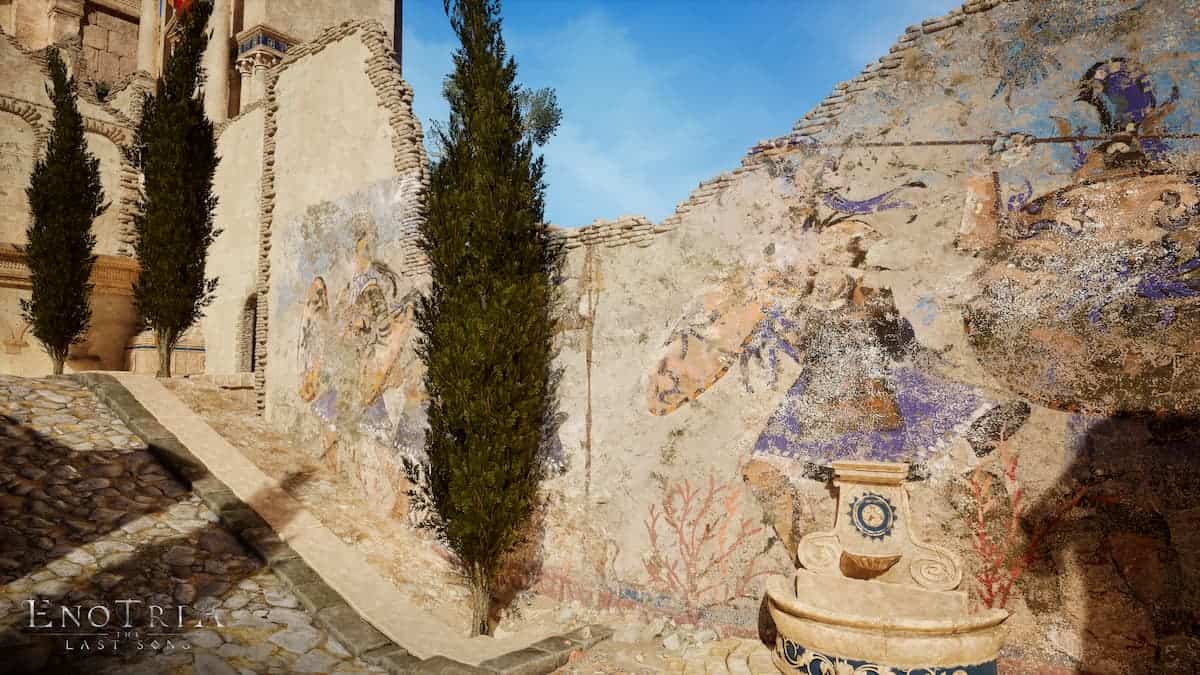
Edoardo Basile: I mean, you gotta pay respect. Anybody that today is developing games needs respect because it’s very hard.
Dylan: 100 percent. It’s a hard, hard job.
Edoardo Basile: I cannot stress enough how hard it is to pull it off. I mean, I have respect for everybody like Lords of the Fallen, Lies of P because they’re the last ones coming out.
Dylan: I loved Lords of the Fallen by the way. I thought it was great.
Edoardo Basile: Yeah, they proved that even Lords of the Fallen had issues at launch because of Unreal Engine 5. But I think they had a very, a very good launch anyways. Like, they have to be respected.
Dylan: Totally. I reviewed it and I really enjoyed it. Probably my game of the year from last year.
Edoardo Basile: Like, I have to say, we were not inspired by them just because when they came out we were already in development. We had no clue. We were actually quite surprised to see Pinocchio being represented by a Korean team because it’s very Italian story and everything, but I mean, yeah, yeah, they did a very, very good job on the gameplay side, of course. And we initially — speaking about scope of the project — thought about Mortal Shell because they were the only ones coming off clean in the genre. Aside from FromSoftware titles, of course. And they [Cold Symmetry] were a similar size team. Of course, our scope is much bigger [than Mortal Shell] in the end.
But, you know, this is game development. Every time it ends up in scope, you just go, I want more, I want more, I want more. And then you suddenly realize, oh, maybe that’s too much. But we figured it out and so we’re fine. But yeah, that was initially the main case study, because they [Cold Symmetry] were the only ones aside from FromSoftware that tried this and they successfully — like commercially speaking — was a success.
They sold very well. The design was very well received by the public. And also, considering that Elden Ring hadn’t come out. Elden Ring really did help broaden the target audience. So nowadays, like when we started, we wanted to go Soulslike because it was a niche. It was a very powerful niche. But then after Elden Ring, I don’t feel like it is such a niche anymore. Like, we are talking like millions and millions of players.
Dylan: If you had full creative control over what your team works on next, what would it be? What would your dream project look like? Or is Enotria: The Last Song your dream project?
Edoardo Basile: I feel like, again, we have so much material. And again, I have to be very careful now. The thing is, there is so much to be said. That’s the thing. We will probably move forward with our story. That’s the thing.
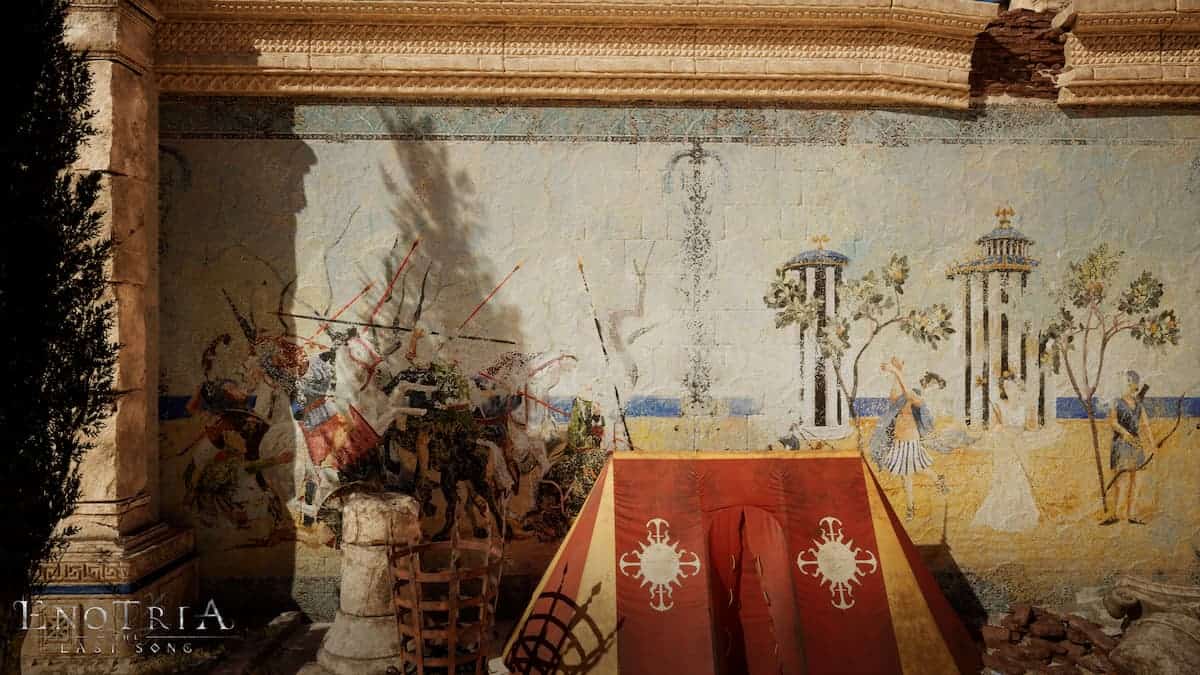
Dylan: So would you consider a sequel after Enotria: The Last Song?
Edoardo Basile: Oh, we have to, yeah. Like we have to see. In my dreams: Yes. Because again, there is so much to say about Italy. Also, this is our very, very first project and we are a very small team. So there was just so much we can say. But again we can go bananas if they gave us money, we can go bananas.
Dylan: Fantastic. When can we expect to Enotria: The Last Song? And for what platforms?
Edoardo Basile: All right. Right now, we’ve set the release date for the 19th of September. It’s very close. All consoles, meaning
Dylan: And one really quick question. Obviously, the demo was very long, about ten hours long. How long do you think the game will be when it’s released.
Edoardo Basile: This is a very hard question to answer for this genre in particular, because it really depends. Are you a completionist? Are you a speedrunner? It depends also on your skill. I would say around 35 to 40 hours in total, but it depends. Like the demo, for instance, it should be like six to eight hours, but there’s people that finish it in four. There’s people that are 12 hours in and are not even halfway through. So it really depends on how you want to approach the game. I would say 40 hours is a nice spot to be in, honestly. Plus, you know, New Game Plus, replayability, and everything.
Dylan: Thank you so much for your time. I really enjoyed my time with Enotria: The Last Song. I wish you all the best for launch.
Edoardo Basile: Thank you for having me.
Enotria: The Last Song is slated to launch on PlayStation 5,

